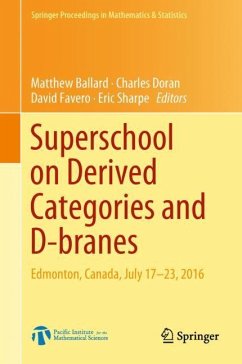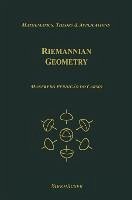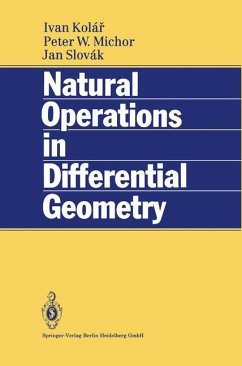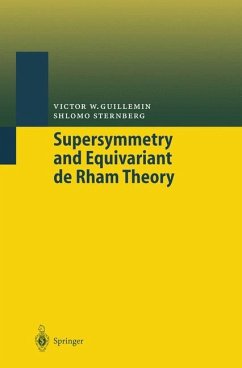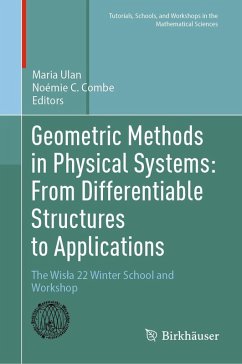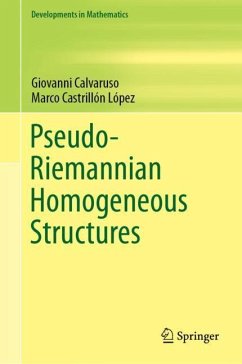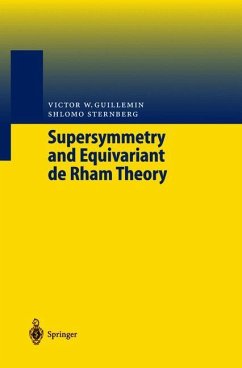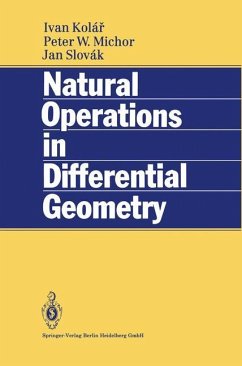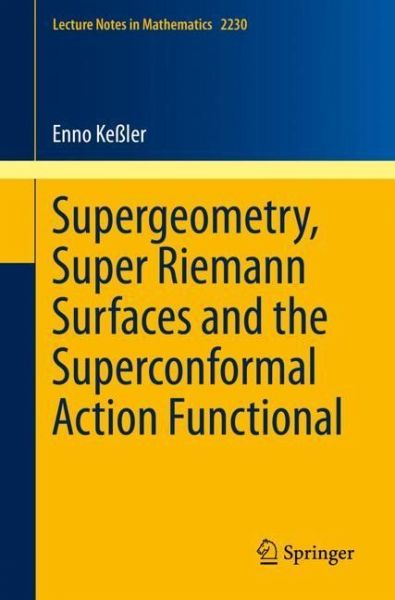
Supergeometry, Super Riemann Surfaces and the Superconformal Action Functional

PAYBACK Punkte
19 °P sammeln!
This book treats the two-dimensional non-linear supersymmetric sigma model or spinning string from the perspective of supergeometry. The objective is to understand its symmetries as geometric properties of super Riemann surfaces, which are particular complex super manifolds of dimension 1 1.The first part gives an introduction to the super differential geometry of families of super manifolds. Appropriate generalizations of principal bundles, smooth families of complex manifolds and integration theory are developed.The second part studies uniformization, U(1)-structures and connections on Super...
This book treats the two-dimensional non-linear supersymmetric sigma model or spinning string from the perspective of supergeometry. The objective is to understand its symmetries as geometric properties of super Riemann surfaces, which are particular complex super manifolds of dimension 1 1.
The first part gives an introduction to the super differential geometry of families of super manifolds. Appropriate generalizations of principal bundles, smooth families of complex manifolds and integration theory are developed.
The second part studies uniformization, U(1)-structures and connections on Super Riemann surfaces and shows how the latter can be viewed as extensions of Riemann surfaces by a gravitino field. A natural geometric action functional on super Riemann surfaces is shown to reproduce the action functional of the non-linear supersymmetric sigma model using a component field formalism. The conserved currents of this action can be identified as infinitesimal deformationsof the super Riemann surface. This is in surprising analogy to the theory of Riemann surfaces and the harmonic action functional on them.
This volume is aimed at both theoretical physicists interested in a careful treatment of the subject and mathematicians who want to become acquainted with the potential applications of this beautiful theory.
The first part gives an introduction to the super differential geometry of families of super manifolds. Appropriate generalizations of principal bundles, smooth families of complex manifolds and integration theory are developed.
The second part studies uniformization, U(1)-structures and connections on Super Riemann surfaces and shows how the latter can be viewed as extensions of Riemann surfaces by a gravitino field. A natural geometric action functional on super Riemann surfaces is shown to reproduce the action functional of the non-linear supersymmetric sigma model using a component field formalism. The conserved currents of this action can be identified as infinitesimal deformationsof the super Riemann surface. This is in surprising analogy to the theory of Riemann surfaces and the harmonic action functional on them.
This volume is aimed at both theoretical physicists interested in a careful treatment of the subject and mathematicians who want to become acquainted with the potential applications of this beautiful theory.




